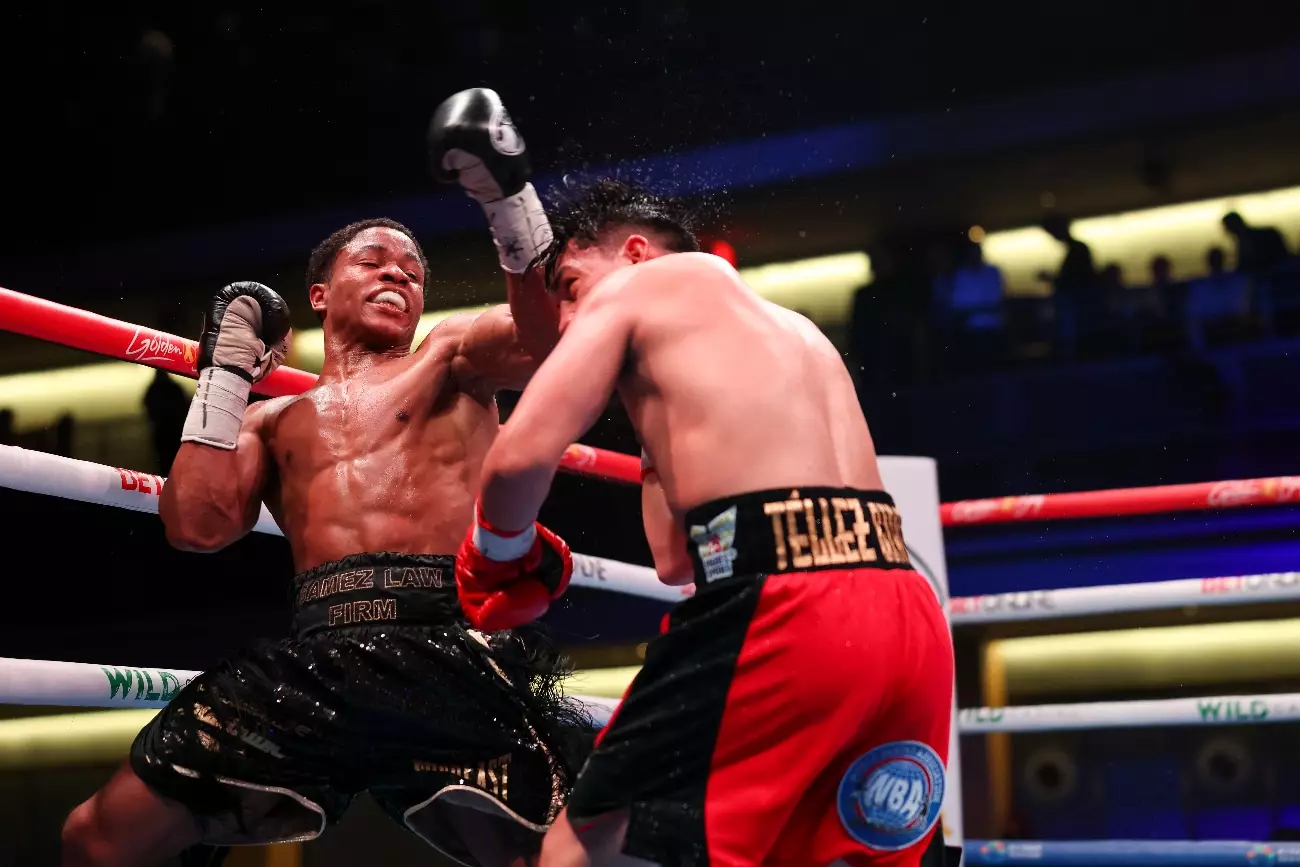As the boxing world buzzes with excitement, the impending matchup between Floyd Schofield Jr. and Shakur Stevenson has captured the imagination of fans and analysts alike. Scheduled for February 22nd, this fight is anticipated not just for its spectacle, but for the narrative that surrounds it—the untested but ambitious Schofield against the experienced and technically astute Stevenson. With both fighters’ camps confirming financial details and waiting for the fight’s official announcement by DAZN and Golden Boy, the stage is set for a potential turning point in Schofield’s burgeoning career.
Floyd Schofield Jr., known as “Kid Austin,” boasts an impressive record of 18-0 with 12 knockouts—an undefeated streak that sounds promising on paper. However, the comparison with Shakur Stevenson, who holds a flawless record of 22-0 with 10 KOs, reveals a stark contrast in experience. At just 22 years old, Schofield has yet to face a top-tier contender, while Stevenson, at 27, has not only faced elite competition but also has the credentials of representing the United States in the 2016 Olympics. This difference in experience has led many fans on social media to speculate that fans may view this as a mismatch—a prediction that raises questions about Schofield’s readiness for the big stage.
The boxing community is often split on the effectiveness of styles in critical matchups. Schofield’s father, Floyd Sr., posits that his son was “built” to take on Stevenson, citing their shared sparring sessions that supposedly showcased Schofield’s skills tailored to counter Stevenson’s technique. While Schofield Jr. echoes this sentiment, insisting that he possesses the attributes necessary to unseat the champion, the underlying truth remains: making the leap from sparring partner to championship combatant is a demanding transition, fraught with pressure and the weight of expectations.
From Stevenson’s perspective, his calculated and strategic approach inside the ring could overshadow Schofield’s aggressive plans if the latter fails to execute effectively. Stevenson has earned a reputation for being elusive, often avoiding significant exchanges and relying on his defensive prowess to secure victories. Schofield’s best chance may lie in relentless pressure; however, history has shown that sustaining aggression against a fighter who excels at evasion can often lead to frustration and squandered opportunities.
In competitive sports, the mental game can be just as significant as the physical preparation. Schofield has acknowledged the experience gap, admitting that he has not amassed the same accolades as Stevenson, who has been through the rigors of elite-level competition. The undefeated champion’s previous setback in the Olympics, where he faced an unexpected defeat, underscores the psychological complexities that each fighter must navigate. Schofield’s confidence, bolstered by the belief that he can capitalize on the champion’s cautious approach, could be a double-edged sword if not tempered with realistic strategy.
Moreover, the psychological weight of expectations plays a crucial role. Stevenson enters the bout with the burden of reputation, whereas Schofield carries the thrill of youth and the desire to make a name for himself. This generates a fascinating dynamic that could either motivate Schofield to outperform expectations or hinder him under pressure.
As February 22nd approaches, both fighters find themselves at a crossroads. For Floyd Schofield Jr., victory could launch him into the spotlight of boxing stardom, proving that he belongs among the elite despite a less seasoned resume. For Shakur Stevenson, this fight represents an opportunity to solidify his reign and fend off the next wave of challengers, solidifying his status as a dominant figure in the lightweight division. Their clash promises to be not just a battle of fists, but a story of ambition, tenacity, and the age-old struggle of experience against youthful vigor—the boxing world will be watching closely.

